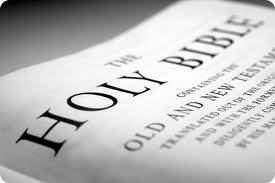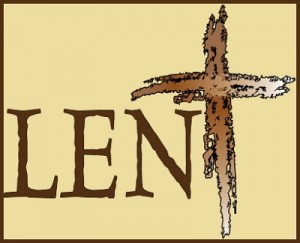====================
This sermon was preached on Sunday, March 17, 2013, at St. Paul’s Episcopal Church, Medina, Ohio, where Fr. Funston is rector.
(Episcopal Sanctorale Lectionary, Patrick of Ireland: Psalm 97:1-2,7-12; Ezekiel 36:33-38; and Matthew 28:16-20. These lessons can be read at The Lectionary. At St. Paul’s Parish, during Lent, we are using the Daily Office of Morning Prayer as our antecommunion; therefore, only these two lessons and the psalm were read. The Epistle lesson, 1 Thessalonians 2:2b-12, was not used.)
====================
![]() In Ainm an Athar, agus an Mhic, agus an Spioraid Naoimh. Áiméan.
In Ainm an Athar, agus an Mhic, agus an Spioraid Naoimh. Áiméan.
Dia dhaoibh ar maidin, gach duine. Beannachtaí na fheile Padraig oraibh.
That’s more Irish than I’ve spoken in nearly two years! What I said was, “God be with you this morning, everyone. The blessings of the Feast of St. Patrick be with you.” In other words, Happy St. Paddy’s Day!
Everyone loves to be Irish on St. Paddy’s Day. Even though we Funstons being descendants of Anglican Irish (or as the Irish would say, “Protestants”) did not have much, if anything, to do with the Irish communities of my childhood, we still (like everyone else) enjoyed St. Patrick’s Day. We would go to the parades, see and hear the pipe-and-drum corps, and all the other traditional sorts of things. On the evening news, we would see the reports of parades in other places, especially the big one down Fifth Avenue in New York City. And we would usually have corned beef and cabbage for dinner.
I have no problem with people dressing kilts (which aren’t really Irish, at all), putting green food coloring in beer, eating corned beef and cabbage (which is also not really Irish), or any of the other silly things people do on this day. It’s all part of the fun. Many like to watch Irish-themed movies on St. Patrick’s Day. My favorite is the heartwarming tale of a boxer’s return home in The Quiet Man, but I also like the mythical nonsense of Darby O’Gill and the Little People, or the intense drama of The Field, or the whacky comedy of Waking Ned Devine. Those movies are the only times I hear anyone say, “Top o’ the mornin’ to ye” or “Faith and begorrah.” At least, I’ve never heard anyone say those things during any of my trips to Ireland.
The worship committee thought we ought to step away from Lent for a day (because March 17 today falls on Sunday) and celebrate St. Patrick. After all, on March 17, the whole world is Irish . . . but the man we commemorate wasn’t Irish and it would be much truer to his memory if on his feast day all the world tried to be not Irish, but Christian.
Patrick, who was a Romano-Brit (meaning a Roman who lived in Britain) was the son of a minor imperial official named Calpornius, who was also a deacon in the church; his grandfather Potitus was a priest. Around the year 406 A.D., at the age of 16, Patrick was kidnapped and made a slave in Ireland to a minor tribal king. After six years, he escaped and returned home to Britain, and then went to Rome. There he was ordained a priest and a bishop and, according to the chronicle of Prosper of Aquitane, was appointed bishop to the Irish by Pope Celestine I; he arrived back in Ireland in 432 A.D. He landed near modern-day Belfast and set up his principal foundation in Armagh, which is now considered the Primatial See of Ireland. He ministered primarily in that part of the country known as Ulster. Patrick was not the first bishop appointed to bring the Christian faith to the people of Ireland. Ciaran and Palladius came before him, but their mission (primarily in Munster and Leinster, further south) did not bear the same fruits as Patrick’s. So today, what we celebrate is not Irish identity or heritage; today, we celebrate the success of a mission to spread the Christian faith.
The choir is going sing a poetic prayer or lorica attributed to Patrick, the famous St. Patrick’s Breastplate, as their anthem. It is attributed to him, but there is disagreement as to whether he actually wrote it. But he did write this prayer:
I give thanks to the one who strengthened me in all things, so that he would not impede me in the course I had undertaken and from the works also which I had learned from Christ my Lord. Rather, I sensed in myself no little strength from him, and my faith passed the test before God and people. (The Confession of St. Patrick)
For St. Patrick it seems the faith which passed the test was deeply Trinitarian and deeply evangelical. He is credited with using the shamrock, now one of the national emblems of Ireland, as an illustration of the Trinity – three lobes, yet one leaf – although that is probably an 18th Century legend rather than a historical fact. And as you heard, the Gospel lesson for his commemoration is the Great Commission: “Go therefore and make disciples of all nations, baptizing them in the name of the Father and of the Son and of the Holy Spirit, and teaching them to obey everything that I have commanded you.” Christ’s final words to his apostles before ascending into Heaven. This evangelical, Trinitarian faith — not green beer nor Celtic music nor corned beef and cabbage nor Irish-ness itself — but trust in God the Father, God the Son, and God the Holy Spirit shared with and commended to everyone around us, this is what we celebrate when we celebrate the Feast of St. Patrick.
I thought perhaps the lesson from Ezekiel was chosen for his feast because, with its “forty shades of green,” Ireland might make one think of the garden of Eden, and in Ireland there are both ruined towns and towns that are inhabited, some of both walled and fortified. But I think rather that it was chosen because, just as the nations around Israel came to know the Lord, the God of Israel, so the nations to which Irish missionaries went came to know the Lord Jesus Christ. What Patrick started in Ireland in 5th Century by the mid 6th Century was spreading to northern Europe, carried there by Irish priests and monks practicing what was called “white martyrdom.” The term comes from a 7th Century Irish sermon called the Cambrai homily:
Now there are three kinds of martyrdom that are counted as a cross to us, namely, white, blue, and red martyrdom.
It is white martyrdom for a man when he separates from everything that he loves for God, although he does not endure fasting and labor thereby.
The blue martyrdom is when through fasting and hard work they control their desires or struggle in penance and repentance.
The red martyrdom is when they endure a cross or destruction for Christ’s sake, as happened to the Apostles when they were persecuted the wicked and taught the law of God. (O. Davis, Celtic Spirituality, Paulist Press: 1999)
The white martyrs left everything dear to them — homes, families, familiar surroundings, even Ireland itself — to spread the Gospel in distant lands; white martyrdom was a pilgrimage on behalf of Christ that might be extended permanently so that they would never again see their homeland. They went first to Scotland and the north of England, but then further afield to Holland, Germany, Scandinavia, Switzerland, and even further. Like the man who had brought Christianity to their homeland, they held a deeply Trinitarian and deeply evangelical faith; and it is that faith which we celebrate when we celebrate St. Patrick’s Day.
It is that faith we all claim and, when we commemorate Patrick, it is to the spread of that faith that we dedicate ourselves. On the first day of Lent, Ash Wednesday, a special Litany of Penance is recited in Episcopal Churches. Among the confessions of that Litany we find this petition: “Our negligence in prayer and worship, and our failure to commend the faith that is in us, we confess to you, Lord.” (BCP 1979, page 268)
Let us remember that confession on St. Patrick’s Day and try not so much to be Irish, but try to be better Christians. Let us be like Patrick, who was not Irish, but Christian, and like him let us follow Christ’s Great Commission. If we must be Irish on this day, let us be like those Irish white martyrs of old, and commend the faith that is in us, a faith that is deeply Trinitarian and deeply evangelical.
Let us remember, also, a petition from the Great Litany which we recited on the First Sunday in Lent four weeks ago:
That it may please thee to inspire us, in our several callings, to do the work which thou givest us to do with singleness of heart as thy servants, and for the common good, we beseech thee to hear us, good Lord. (BCP 1979, page 151)
Let us pray:
Everliving God, whose will it is that all should come to you through your Son Jesus Christ: Inspire our witness to him, that all may know the power of his forgiveness and the hope of his resurrection; who lives and reigns with you and the Holy Spirit, one God, now and for ever. Amen.
====================
A request to my readers: I’m trying to build the readership of this blog and I’d very much appreciate your help in doing so. If you find something here that is of value, please share it with others. If you are on Facebook, “like” the posts on your page so others can see them. If you are following me on Twitter, please “retweet” the notices of these meditations. If you have a blog of your own, please include mine in your links (a favor I will gladly reciprocate). Many thanks!
====================
Father Funston is the rector of St. Paul’s Episcopal Church, Medina, Ohio.

 Some years ago, during the summer of 2000 to be exact, I was one of about a dozen adults who chaperoned 87 teenagers on a ten-day tour of northern Italy. One of the pieces of advice given our group by the organizing tour guide was that the young ladies would not be allowed into Italian cathedrals wearing shorts or tank-tops. She suggested that they take with them, and always have on hand a light-weight over-blouse and a large scarf that they could tie around their waist to form a sort of skirt. This caused no amount of amusement among our group 17- and 18-year-old, Twenty-First Century, American girls, but it only took one time being escorted out of a church by a stern Italian nun for them to realize how serious the advice was and to never again forget to put on their overshirts and their wrap-around skirts.
Some years ago, during the summer of 2000 to be exact, I was one of about a dozen adults who chaperoned 87 teenagers on a ten-day tour of northern Italy. One of the pieces of advice given our group by the organizing tour guide was that the young ladies would not be allowed into Italian cathedrals wearing shorts or tank-tops. She suggested that they take with them, and always have on hand a light-weight over-blouse and a large scarf that they could tie around their waist to form a sort of skirt. This caused no amount of amusement among our group 17- and 18-year-old, Twenty-First Century, American girls, but it only took one time being escorted out of a church by a stern Italian nun for them to realize how serious the advice was and to never again forget to put on their overshirts and their wrap-around skirts.  It’s called bibliolatry and it’s been around a long, long time. The dictionary definition of bibliolatry is “excessive reverence for the Bible as literally interpreted.” What I most enjoy about modern bibliolatry is that it denies that it is bibliolatry in the most circular and bibliolatrous of ways.
It’s called bibliolatry and it’s been around a long, long time. The dictionary definition of bibliolatry is “excessive reverence for the Bible as literally interpreted.” What I most enjoy about modern bibliolatry is that it denies that it is bibliolatry in the most circular and bibliolatrous of ways.  Despite the tradition that the Psalms were written by King David, any good commentary will tell you that this Psalm was written probably in the first decades of the Sixth Century BC, at around the time of the fall of Jerusalem to the Babylonians circa 598 BC. Some scholars would even suggest that it was written as late as the Maccabean era (circa 165 BC). Personally, I tend to go with the earlier date; the Psalm’s description of wide spread destruction of religious meeting places seems more in line with the pre-Exilic invasion.
Despite the tradition that the Psalms were written by King David, any good commentary will tell you that this Psalm was written probably in the first decades of the Sixth Century BC, at around the time of the fall of Jerusalem to the Babylonians circa 598 BC. Some scholars would even suggest that it was written as late as the Maccabean era (circa 165 BC). Personally, I tend to go with the earlier date; the Psalm’s description of wide spread destruction of religious meeting places seems more in line with the pre-Exilic invasion. As I read the lessons and Psalms of the Daily Office lectionary for today, this was the passage that spoke loudest to me, but I did not want to write about it. I tried to reflect upon and author a meditation about some other bits of the Scriptures appointed for today, but my thoughts kept returning to this one.
As I read the lessons and Psalms of the Daily Office lectionary for today, this was the passage that spoke loudest to me, but I did not want to write about it. I tried to reflect upon and author a meditation about some other bits of the Scriptures appointed for today, but my thoughts kept returning to this one.  Several years ago – 33 to be exact – Bruce Dern starred in a little-remarked movie entitled Middle Age Crazy; it dealt with the main character’s midlife crisis of turning 40 years of age.
Several years ago – 33 to be exact – Bruce Dern starred in a little-remarked movie entitled Middle Age Crazy; it dealt with the main character’s midlife crisis of turning 40 years of age.  A few days ago I wrote about my interest in superstring theory, m-theory, and the multiverse concept which springs from my life-long love of science fiction and the especially the “alternate reality” sorts of tales. I suggested that Jesus’ miracles might have been accomplished by his somehow accessing an alternate reality to affect this world; that would imply some sort of access to knowledge of those other universes.
A few days ago I wrote about my interest in superstring theory, m-theory, and the multiverse concept which springs from my life-long love of science fiction and the especially the “alternate reality” sorts of tales. I suggested that Jesus’ miracles might have been accomplished by his somehow accessing an alternate reality to affect this world; that would imply some sort of access to knowledge of those other universes. Every time I recite Psalm 19 with its words of praise for the Law, I am caught up short by verse 12. In verses 7-11 we read that the Law is perfect and just, that it provides wisdom and rejoicing, that it is more desirable than gold or honey, and that in keeping it there is enlightenment and reward. Then comes the kicker, “Who can tell how often he offends? Cleanse me from my secret faults.” In other words, despite all the grandeur and wonder of the Law, no one can actually keep it!
Every time I recite Psalm 19 with its words of praise for the Law, I am caught up short by verse 12. In verses 7-11 we read that the Law is perfect and just, that it provides wisdom and rejoicing, that it is more desirable than gold or honey, and that in keeping it there is enlightenment and reward. Then comes the kicker, “Who can tell how often he offends? Cleanse me from my secret faults.” In other words, despite all the grandeur and wonder of the Law, no one can actually keep it! In The Book of Common Prayer on page 264 you’ll find the beginning of the liturgy for Ash Wednesday. If you were here on that day which marks the beginning of this season we call Lent, or in another church to be marked on your forehead with the cross of ashes, to be reminded of your mortality with the familiar words, “Remember you are dust, and to dust you will return,” you will also have heard the Lenten admonition which the presiding priest reads at each Ash Wednesday service. It begins at the bottom of that page and comes in the service after the reading of the lessons of the day and the preaching of the sermon.
In The Book of Common Prayer on page 264 you’ll find the beginning of the liturgy for Ash Wednesday. If you were here on that day which marks the beginning of this season we call Lent, or in another church to be marked on your forehead with the cross of ashes, to be reminded of your mortality with the familiar words, “Remember you are dust, and to dust you will return,” you will also have heard the Lenten admonition which the presiding priest reads at each Ash Wednesday service. It begins at the bottom of that page and comes in the service after the reading of the lessons of the day and the preaching of the sermon.

